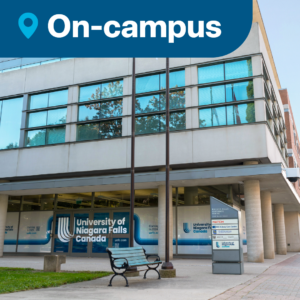
Undergraduate
Bachelor of Science –
Biomedical Sciences
Shape a Healthier Tomorrow
Gain a deeper understanding of the Biomedical Sciences and get started on your journey to a career in the healthcare industry. The BSc Biomedical Sciences program is geared to those with an interest in developing new medical technologies and healthcare treatments.
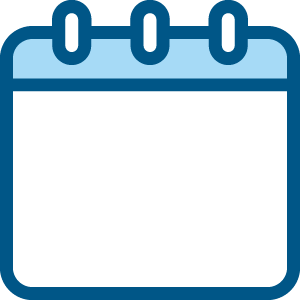
Start Dates
Oct 2024
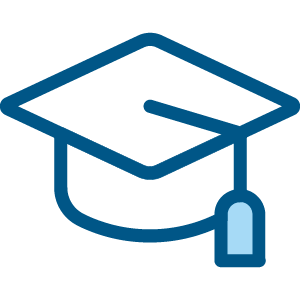
Program Length
48 Months
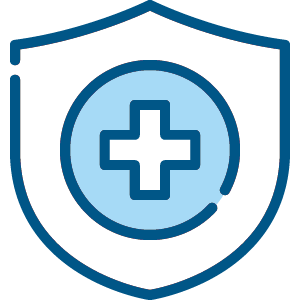
Pathway
Pre-Med
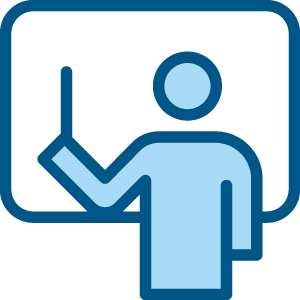
Delivery
On-campus
Quick Find:
Talk to a Student Advisor
Career Highlights
Use your BSc Biomedical Sciences degree to apply your scientific skills to improve people’s health outcomes and quality of life. While many students opt to pursue graduate studies, there are several industries you can work in right away:
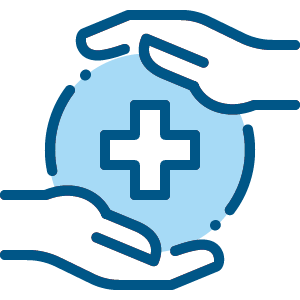
Public Health
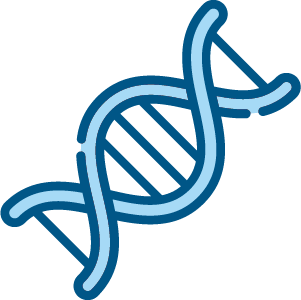
Health Science
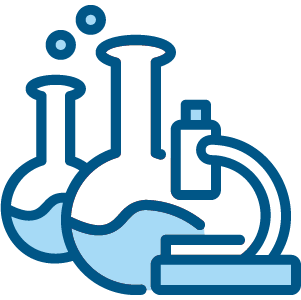
Research

Healthcare
Pre-Med Pathway
Get a head start on your career in medicine through the Pre-Med Pathway developed in partnership with two internationally recognized medical schools: Medical University of the Americas (MUA) or Saba University School of Medicine (SABA).
Upon successful completion of the BSc degree with a GPA of 3.0 or greater, you will receive one full year of transfer credits towards your Medical Degree at either of the partner institutions.
In addition to the full year transfer credits, which provides an obvious cost and time savings, the partnership will also provide you with other appealing benefits, including the opportunity for conditional acceptance, and if satisfied, a guaranteed seat in a medical program.
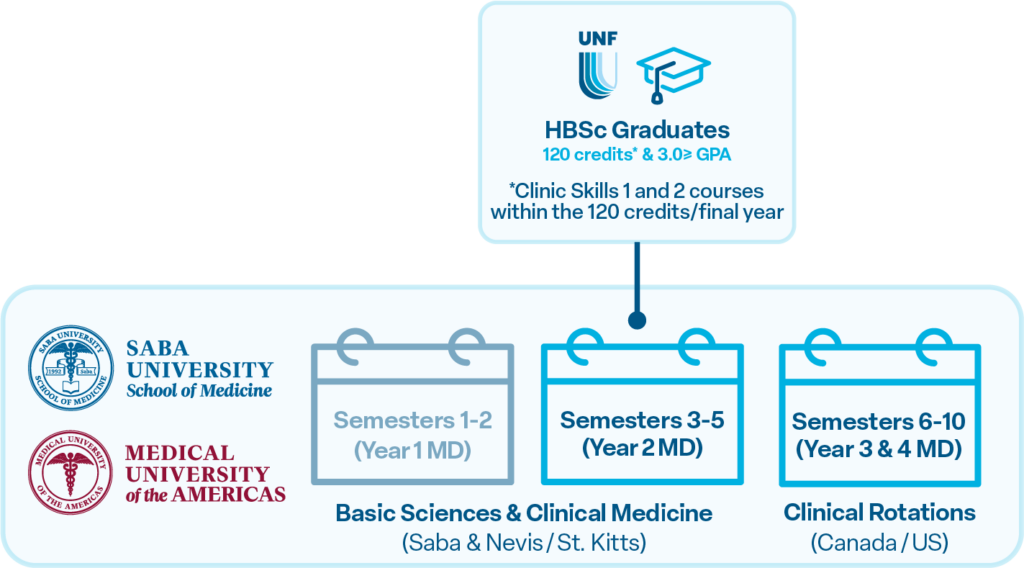
Admissions

Academic Information
Applicants must meet the following minimum conditions for admission:
- Ontario Secondary School Diploma (or equivalent credential)
- Six Grade 12 4U or 4M-level courses, including Ontario 4U Math and 4U English, or their equivalent
- Minimum overall grade average of 70%
- Must meet English language proficiency requirements (if applicable)
Document Checklist
Applicants must submit:
- A completed application form
- Official high school transcript
- Official transcripts from all post- secondary institutions attended (if any)
- Proof of English language proficiency, if applicable
- Certified translations of any required documents not in English
International Information
Applicants from outside Canada must also submit:
- Documentation confirming their secondary level or high school completion was awarded, if not already indicated on official transcripts
- A credential evaluation from a recognized service, if required by the registrar
Tuition Information
Choosing to pursue a university education is a big commitment that impacts every aspect of your life – including your finances. Our fees are determined by the total cost of individual credits per academic year. All fees are listed in Canadian dollars and these rates are subject to change.
Scholarships & Awards
The Office of the Registrar had dedicated $5 million in scholarships, awards and financial support to students in 2024. Entrance Awards are for newly admitted international and domestic students while Academic Scholarships are for those entering the second term of their program.
Financial Aid Options
UNF has partnered with organizations to help newly admitted domestic students finance their education.
$32,040
Domestic Tuition
$120,000
International Tuition
$5 Million
Scholarships & Awards
Career Outlooks
Employment and Social Development Canada (ESDC) is predicting some impressive growth in the job market for Biomedical Sciences graduates.
By 2028, there will be a 52.2% surge in health-related jobs and a 38.9% boost in natural and applied sciences gigs. That translates to 1.4 million fresh opportunities knocking on the door.
ESDC has narrowed it down to 28 specific job categories, with 760,000 job openings on the horizon by 2028. Half of those are brand-new positions.

Career Paths
- Healthcare professional
- Laboratory technician
- Science writer
- Pharmaceutical sales representative
- Public policy advisor
Salary Spotlight
- $82,709
- $54,672
- $91,650
- $92,500
- $134,550
*Source, Talent.com
Bachelor of Science – Biomedical Sciences FAQs
Applicants from Ontario need six Grade 12 4U or 4M-level courses, with a minimum overall grade average of 70%.
BSc students participating in the Pre-Med Pathway can receive one full year of transfer credits toward the MD program at Saba University School of Medicine and Medical University of the Americas. Located in the Caribbean, both schools provide an international alternative to U.S. and Canadian medical schools.
Fast Facts:

Start Dates:
Oct 2024
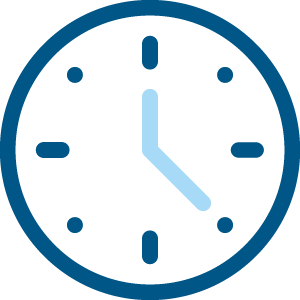
Complete in:
48 months

Delivery:
On-campus
Course Highlights
Human Anatomy & Physiology
Learn the structure of the function of the human body. Virtual lab exercises will assist in developing a basic understanding of the physiological processes that arise from the body’s structure.
Community Health
Gain an understanding of population-based health, as opposed to individual health. Learn the basic concepts in epidemiology.
Health Psychology
A look at how biological, psychological, and social factors interact with and affect the efforts people make in promoting good health and preventing illness.
Human biology, organic chemistry, scientific inquiry, health research methods, genetics, nutrition, microbiology, anatomy, abnormal psychology
Students in the Pre-Med Pathway will need to take Clinic Skills 1 and 2 courses as their elective choices in their final year of the Biomedical Sciences program, as all other courses have been mapped and learning outcomes and objectives are covered by the core curriculum for the MD program.
Upcoming Events
UNF Open House: April 25
4342 Queen St, Niagara Falls, ON L2E 7J7
Contact Your Student Advisor
Schedule an appointment with your dedicated student advisor at a time that's convenient for you to receive more information about:
- UNF Programs
- Available scholarships
- The application process

This institution has been granted a consent by the Minister of Colleges and Universities to offer this program for a seven-year term starting October 14, 2022. Prospective students are responsible for satisfying themselves that the program and the degree will be appropriate to their needs (e.g., acceptable to potential employers, professional licensing bodies or other educational institutions.)
